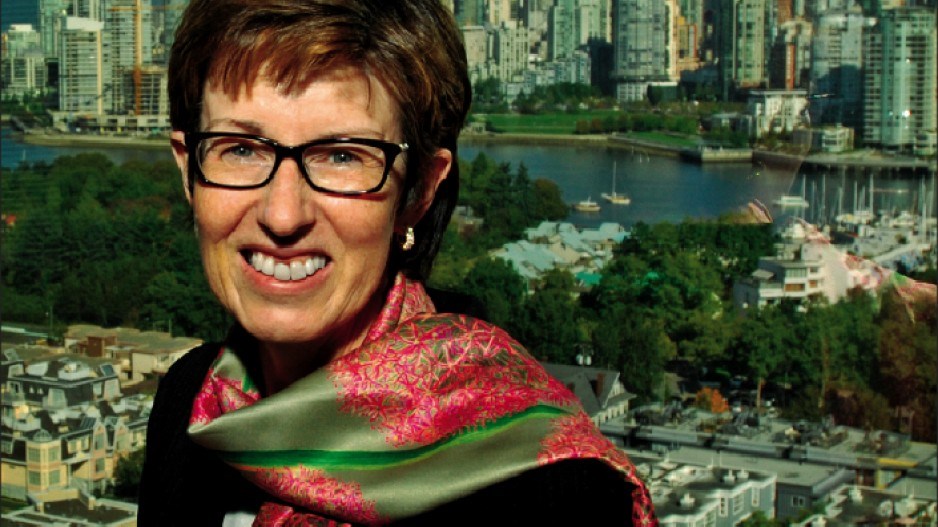Ida Goodreau raised eyebrows when she quit her job as CEO of LifeLabs Medical Laboratory Services in December. After all, she had been at the helm of Canada’s largest supplier of community laboratory services for less than a year.
There she oversaw more than 3,000 employees who provide more than 50 million laboratory tests to more than 10 million Canadians and 20,000 physicians annually.
She won’t say exactly why she left.
“Personal reasons. That’s all I want to say about it,” said Goodreau, who has decades of top executive experience in a wide range of sectors.
Part of her decision, she admits, is that as LifeLabs CEO, she had to spend a lot of time in Toronto.
“I really enjoy Vancouver,” the 58-year-old told Business in Vancouver. “I really enjoy having time here from a personal perspective. I also love the non-profit activity and the business environment.”
The avid gardener who has a home on Bowen Island is too young to retire. She is considering a few options for her future. Ideally, Goodreau would like to be involved in a full-time role where she can devise policy or be a consultant on corporate strategy.
In the meantime, she is busy on both corporate and non-profit boards.
Corporate involvement includes being on boards at:
She also contributes to the Vancouver Board of Trade as a director and a member of various committees.
Her non-profit involvement is really what gives her satisfaction, however.
Goodreau was CEO of Vancouver Coastal Health (VCH) in February 2008, when she was part of the team that created the Burnaby Centre for Mental Health and Addictions.
About 90% of the clients that this centre helps were formerly homeless. Getting these people off the streets and into stable homes is what drives Goodreau.
She also sits on the boards of directors at the Vancouver Foundation and at the Street to Home Foundation.
Community involvement also includes mentoring one or two young women through a Women’s Executive Network progam and another two or three women at a time on a casual basis.
“Women need role models,” she said. “The whole notion of mentoring and supporting young women is still valid even though things are a lot different from the way they were 20 years ago. Then, [the women’s movement] was about changing the whole system.”
Goodreau’s early business training came when she was completing an undergraduate commerce degree from the University of Windsor in the 1970s.
She continued at the same university to get her MBA while working in finance and operations for Ontario’s Union Gas near her hometown of Chatham, Ontario.
Goodreau moved to B.C. in 1992 to work for a different resource sector company but one with a workforce that was just as male-dominated.
This did not stop her from becoming senior vice-president of human resources at what was then the B.C. lumber giant Fletcher Challenge Canada.
Willing to move abroad to further her career, Goodreau jumped at the chance to move to New Zealand to head the Fletcher Challenge subsidiary Tasman Pulp and Paper. Then, after a brief stint back in Vancouver as the president of Fletcher Challenge’s pulp division, she moved to Norway.
Her Norway job, as the company’s senior vice-president of global optimization, came after Norway-based Norske Skog acquired Fletcher Challenge.
Corporate board chairs clamoured to get Goodreau as a director of their companies when she returned to Vancouver in 2002 to head VCH.
Divorced with no kids, Goodreau likes to spend her free time gardening and with friends at her Bowen Island home.
She exudes the quiet confidence of someone who is comfortable in her own skin.
She tells women she mentors how important it is to define personal objectives and not be swayed by what others think is important.
“You really need to know what’s important for you,” she said.
“Don’t go after money or status if that’s not personally rewarding or if the activity that is required to get the money or status is not what you want to do.” •




